11 Causes of Car Losing Power When Accelerating (Gas & Diesel Engines)
Press the gas pedal but your vehicle is lacking power? Don’t despair. Losing your ability to accelerate when you need to can be a major safety concern.
Sudden loss of acceleration has quite a few potential causes. Keep reading to learn why your car is losing power when accelerating and how to fix the issue.
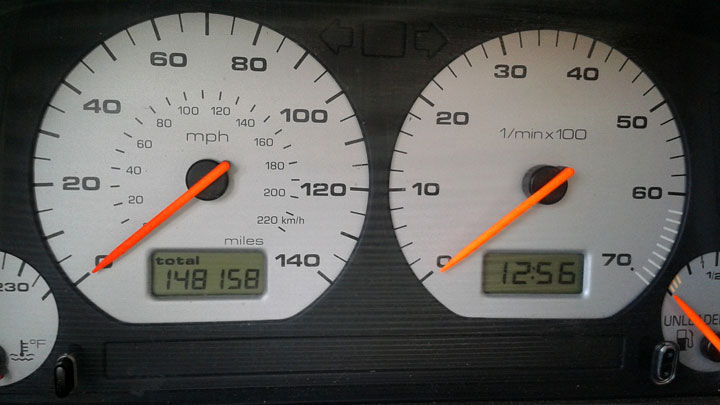
Reasons Your Car Loses Power But the Engine Remains Running
There are many reasons why your vehicle may be losing power that can affect both gas and diesel engines. These causes can be broken down into three areas:
- Mechanical problems such as: low compression, clogged fuel filter, dirty air filter, clogged exhaust manifold.
- Malfunction of sensors such as: camshaft position sensor, MAF sensor, oxygen sensor, crankshaft sensor and all sensors relative to the EFI system.
- Malfunction of actuators such as: bad fuel injectors, bad fuel pump, bad spark plugs.
#1 – Low Compression (Gas & Diesel Engine)
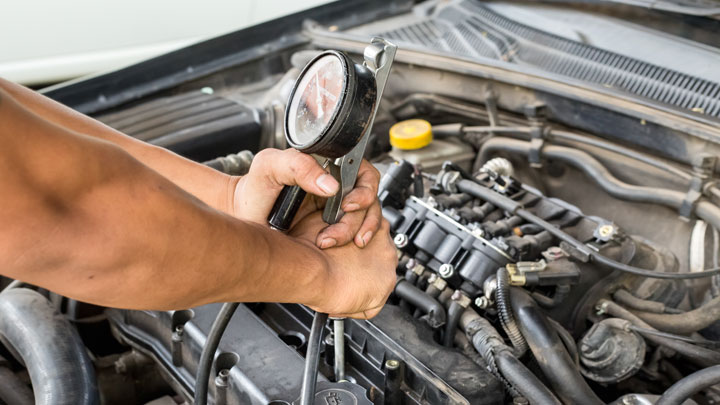
In order for a car’s engine to function properly and provide adequate power to the vehicle, there must be good cylinder compression throughout the combustion process. If the compression is low, then the power of the engine will be low.
The result will be an engine that simply doesn’t function properly. Diagnosing low cylinder compression is the next step toward a solution.
#2 – Clogged Fuel Filter (Gas & Diesel Engine)
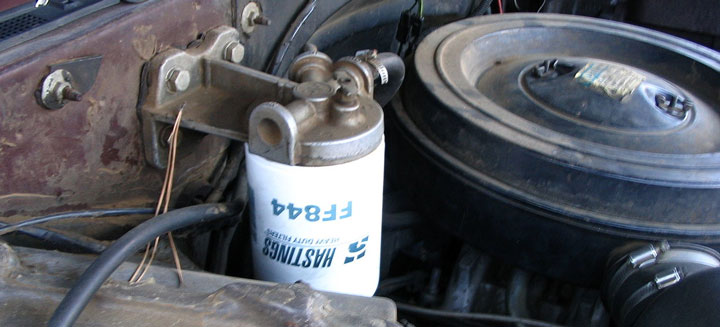
The fuel filter is located in between the fuel injectors and fuel pump of your vehicle. The job of the fuel filter is to screen the gasoline for any impurities which may exist in it. That way, when the fuel pump sends the gasoline into the engine, those impurities won’t be there.
The fuel filter is literally a barrier between the contaminants in the gasoline and the engine of your vehicle.
If you were to have a dirty fuel filter or one that couldn’t perform its job properly because it’s damaged or clogged, fuel pressure would be reduced and it would even be possible for those contaminants to find their way into the engine and at some point, cause expensive damage.
Once that happens, the engine will eventually lose its power and the overall functionality of the vehicle will be impaired. Replacing your fuel filter is the most straightforward fix.
#3 – Bad Air Filter (Gas & Diesel Engine)
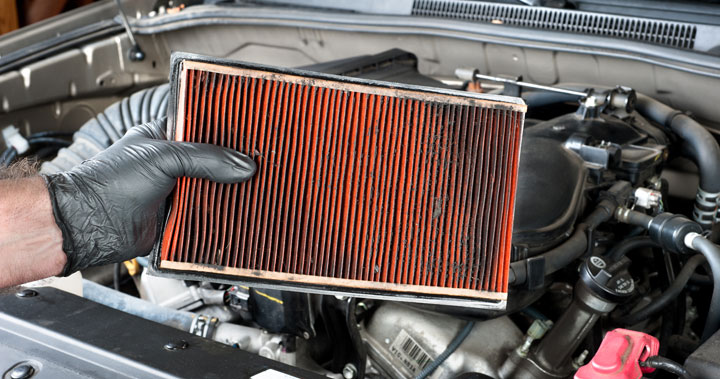
The internal combustion chamber of an engine is responsible for mixing gasoline and air together in order to generate the power that is needed to run your vehicle. Before the air can enter the chamber, it must pass through an air filter that screens out bugs, debris, and other kinds of impurities that may exist in it.
If these impurities were to get into the engine, they could cause severe damage. However, air filters tend to get clogged after they’ve been used for a while.
Once an air filter gets clogged, it will limit the amount of air that can get into the internal combustion chamber. This will negatively impact the functionality of the vehicle because the engine won’t be able to generate a sufficient amount of power to run the car.
Replace your air filter and you should be good as new. If you have a reusable air filter such as a K&N, simply clean it according to the manufacturer’s directions.
#4 – Clogged Exhaust Pipe (Gas & Diesel Engine)
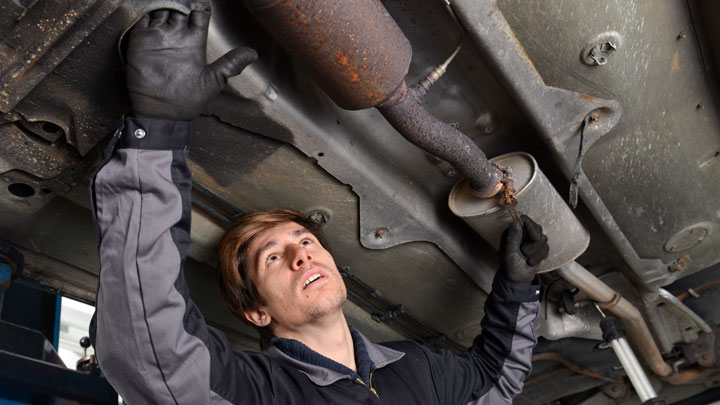
There are two filters in an exhaust system; the muffler and the catalytic converter. The job of the catalyst converter is to cut down the amount of pollution generated from the exhaust gases.
As for the muffler, its job is simply to decrease the amount of noise that is made. If the exhaust pipe or any of its filters were to get clogged, it would weaken the functionality of the engine by reducing its power and making the vehicle drive slow when trying to accelerate.
A clogged exhaust system is bad on any vehicle but it’s even worse on a turbocharged vehicle.
#5 – Camshaft Position Sensor Malfunction (Gas & Diesel Engine)
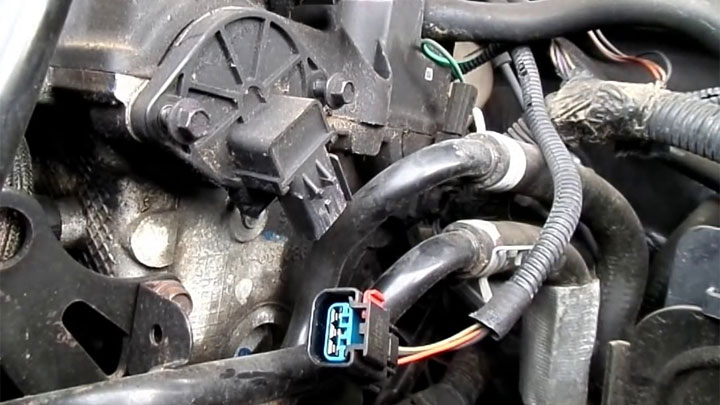
The vehicle’s camshaft position sensor is responsible for gathering information about the camshaft speed of the vehicle and then sending it to the electronic control module (ECM).
This module is a computer which exists inside most cars on the road today. Once information about the camshaft speed is sent to the ECM, the computer will then manage the timing of both the fuel injection and ignition based on this information.
However, if there is a malfunction with the camshaft position sensor and it’s not able to send this information to the ECM, then the performance of the engine will be greatly impacted and likely won’t be able to function properly.
#6 – MAF Sensor Malfunction (Gas Engine)
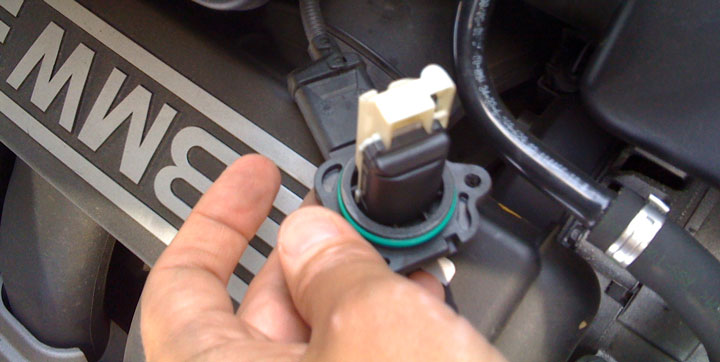
The main responsibility of a Mass Airflow Sensor is to measure the amount of air that flows into the engine and then report this amount to the Powertrain Control Module. From there, the module will use this information to calculate the load that is being placed on the engine.
If there were to be some sort of malfunction with the sensors, then the engine’s performance would be diminished.
#7 – Oxygen Sensor Malfunction (Gas & Diesel Engine)
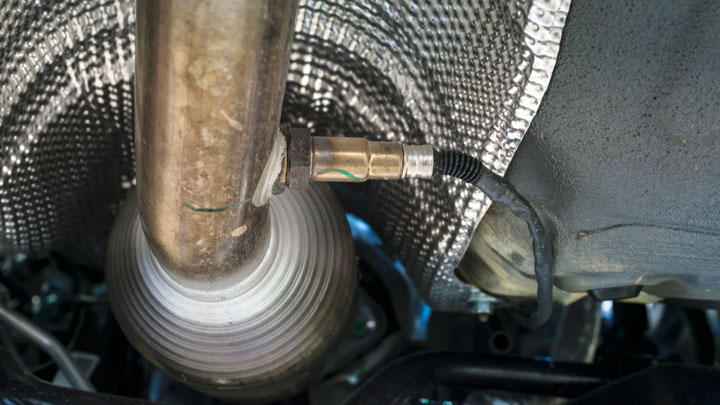
When exhaust gases leave your vehicle’s engine, the amount of gases which leave is measured by the oxygen sensor. The electronic control module then uses this information to figure out the real-time air-to-fuel ratio that exists in the vehicle’s engine.
The oxygen sensor is positioned inside of the exhaust stream. It enables the engine timing and fuel injection system to do their jobs efficiently. The oxygen sensor even provides support with emission control as well.
But if a malfunction were to take place with the oxygen sensor, then it wouldn’t be able to accurately send information about the air-to-fuel ratio to the electronic control module. This would cause the engine to start performing poorly and it would ultimately have a negative impact on the environment.
#8 – Bad Fuel Injectors (Gas and Diesel Common Rail Engine)
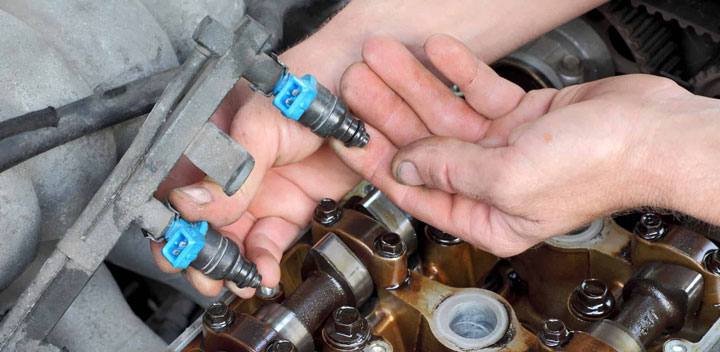
Fuel injectors are an important management component of a vehicle’s engine. They are located within the fuel system of a vehicle and their main job is to spray fuel inside of the engine.
The computer of the engine is what controls the fuel injector and the specific time intervals and patterns in which the injector sprays fuel into the engine. That way, the engine can perform the best that it can under different driving conditions.
You will find that most vehicles on the road these days have fuel injectors in them. If a fuel injector were to become damaged or malfunction in some way, then the engine would not be able to generate a sufficient amount of power to run the vehicle.
You can expect all kinds of engine performance problems to take place since the fuel injector is a crucial part of the fuel system.
#9 – Bad or Weak Fuel Pump (Gas Engine)
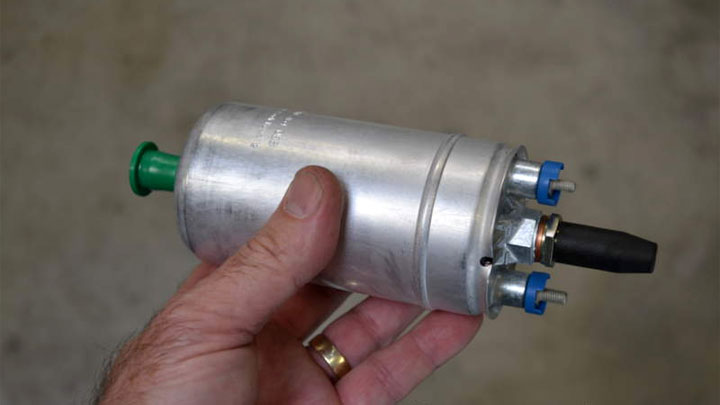
The responsibility of the fuel pump is to take fuel from the gas tank and transfer it into the engine of the vehicle. Not only that, the fuel pump ensure that the fuel is delivered at the right pressure so that it can meet the demands of the engine for maximum performance.
If something were to malfunction or go wrong with the fuel pump, your car won’t accelerate and the performance of the engine would ultimately be jeopardized.
Read Also: Symptoms of a bad throttle position sensor
#10 – Bad Spark Plugs (Gas Engine)
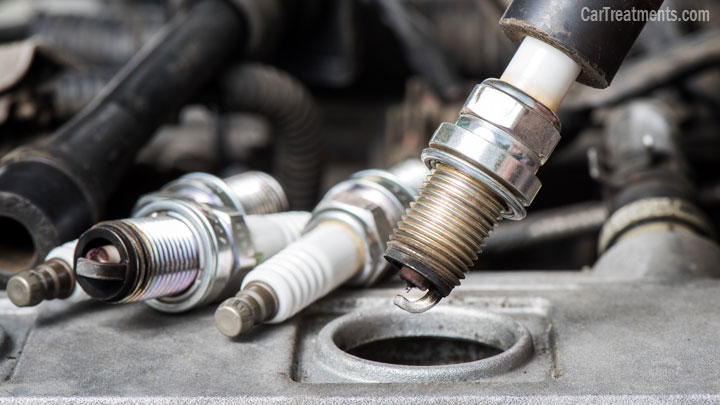
Spark plugs are an important component of a vehicle’s internal combustion motor. After the ignition coil sends an electrical signal to the spark plugs, they transmit that signal to the combustion chamber so that its air & fuel mixture can be ignited by an electric spark.
If the spark plugs were to ever fail, then the engine’s performance would diminish and eventually fail altogether.
Read Also: Causes of Car High Fuel Consumption in Diesel and Petrol Engines
#11 – Bad Ignition Coil (Gas Engine)
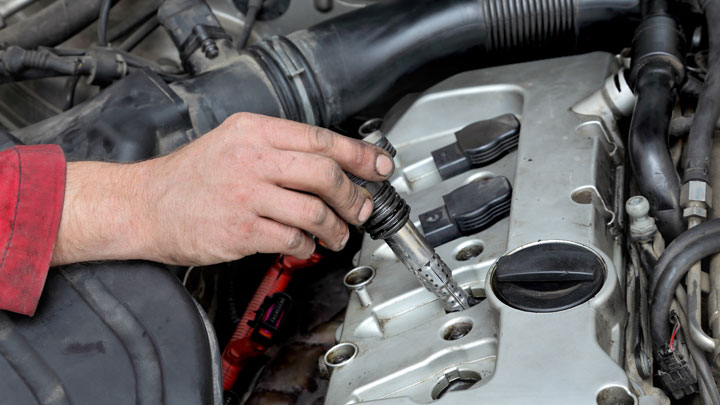
The ignition coils of the ignition system serve as an electronic engine management element which is responsible for converting the 12 volts of power generated by the vehicle into 20,000 volts. This amount of voltage is needed in order to generate the electrical spark which can ignite the air & fuel mixture of the engine.
If the ignition coil were to fail, then the vehicle would be unable to accelerate and its power would be lost.
Other Causes of No Power When Accelerating
- Bad turbocharger
- Bad EGR valve
- Bad injection pump delivery valve (conventional diesel engine)
- Replace the Engine or Replace the Car? (11 Factors to Consider) - Apr 11, 2024
- Plastic Piece Dragging Under Your Car? (What It Is and What To Do) - Mar 21, 2024
- Timing Belt vs Timing Chain (What’s the Difference?) - Feb 27, 2024

Thank you 💕🙏 for the information
Good Day
My wife own’s a 2005 Tata Indica 1.4. She drove the car the most of the day with out any issues. Later that day she started the car as normal and it backfired but didn’t stall or anything. but now while driving the car losses power around 1500 to 1800rpm’s. It doesn’t want to accurate, then you have to give it more gas. Idling is normal, no misfiring.
Hi..My Indian Nissan Sunny 2012 model engine misfires/shakes, but only some times. I have changed spark plugs & ignition coils. But still the engine misfires. If I switch off the engine and switch it on during missing , misfire is gone. Can you help me to identify the actual reason.
Since you’ve already changed a few components in the ignition system, I might start by looking at the fuel system. You could try a fuel pressure test. See if the misfires get worse under load. How are the injectors? You could try cleaning or replacing those.
nice content good
My son’s 2006 F150 almost died on the street.. The RPM went to zero but the engine kept running, barely. The engine wrench light came on. He said after he started it (either he shut the engine off or the engine stalled) it roared, and when he put it in reverse or drive it wants to go by itself, like it is forcing itself to move. He checked the oil 2 weeks ago and it was good. He checked it today and it was not on the dipstick. After putting oil in it came back to life. We suspect it developed a leak recently. Hope this helps.
***But, out of curiosity; if the problem was not low oil, and it was full on the dipstick, what else could this have been? For those who have experienced the same symptoms.
I don’t know. Running the truck with low oil is pretty bad for the engine, and running the truck with no oil is really bad for the engine. Check the oil routinely so you know how fast it’s leaking. Can you tell where it’s leaking from? Is the truck burning oil instead of leaking it?
i have tayota spacio vvti it loses power when accerating but a minutes it will pick up
Any codes on the dash? Any other symptoms that accompany the issue? If not, probably your best bet would be to hook up a good scan tool and look at the live data to see if anything looks abnormal. This is something a mechanic should be able to do if you’re not sure what to look for.
I have a Mitsubishi ASX 2011 and after the battery and some components were stolen, now have code P0113, P0102, P0657, motor have a clunky sound and there is no acceleration power rpm needle dances in idle, any suggestion?
Check to make sure all sensor connectors are plugged in and no wires were cut. If someone stole some components from you, they may have cut wires in order to take things quickly.
I have a 1983 Honda Accord LX Hatchback automatic transmission with 51,000 miles on it. I’ve had a lot of issues with the car since I acquired it – I actually JUST got my car back from the mechanic 10 days ago, after he had it for a month and a half. i had to get it towed to his shop because my car began to suddenly stall out when it would come to a near complete stop, and i ended up flooding the carburetor trying to pump the gas to get the car to start back up.
At first, everything was fine. He replaced the master brake cylinder and i don’t need to push all my weight on the brakes to slow down anymore, which IS nice.
But, on the 3rd day, it started having issues on both the highway, and on any street that has even the slightest amount of elevation. If my car is on either one of those two for anything more than 15 seconds, I can be flooring the accelerator, and see and hear the RPMs working hard, but my car will begin to slowly lose speed, overheat (obviously), and – depending on how long I floored the accelerator for – will stall out on me.
On the 8th day, i had gone to work his side streets, everything was fine, but when i was about to head home, i turned on my car, and usually, the carburetor takes anywhere from 3-8 minutes before idling over, but after waiting for 25 minutes, it never idled over. I turned off the car, waited about 2 minutes, and tried again, but again, waited another 15 and still nothing. Frustrated, irritated, and drained from my work day as well, i said “f this” and drove the car home as it was.
Today is the 10th day of me having the car back. A few hours ago, I went to check up on my car, and see what mood it was in. I started up the car, and was about to light a cigarette while i waited for the carburetor to idle over, when all of a sudden, the inside of the car cabin smelled like if i was SUBMERGED in gasoline. It was so strong that within seconds i was overwhelmed out of the car, my eyes were tearing up from the fumes. i did reach back in the car and shut it off. I recollected myself, and checked as much as i could on the outside. There were no fluids dripping onto the ground underneath my car neither fresh or recent that i saw, but my car was sputtering again, and unfortunately, i couldn’t even find out if the carbeurator ever made it to the idling stage, kuz i had to turn the car off.
I know it’s a lot of context and information, but i figured the more details i give, the easier it would be easier to solving. Thank you for your time!
Sounds like the fuel tank or fuel pump may be leaking. I’d address the fuel smell in the cabin before doing anything else.
I have a 2005 Toyota Tacoma that has about 190,000 miles on it. Seems like it’s lost a bit of power as it doesn’t spin the tires as it used to at a complete stop and acceleration has slowed. I’m thinking it’s just because it’s an older truck but is there a clear cause or fix. Was thinking air or fuel filter issue? I don’t know much about trucks but I like my cars functioning at 100% (which I know is rather rare without any tunes and such).
Make sure you’re up to date on all your maintenance, including spark plugs.
I have a Nissan Sentra 2018 Nismo and is loosing power while accelerating. I have to turn it off twice to make it work normal.
Is the check engine light on? How many miles does it have? When was the last time the spark plugs were replaced? Is it up to date on all its other maintenance?
My Citroen relay loses power leaving me just enough to get to hard shoulder. 45 minutes later it will start again and I can drive for weeks ,but it will happen again.
I have had new accelerator pedal fitted plus new fuel filter and engine air filter but neither were really bad.
I am challenging quite a few local mechanics who haven’t a clue and to be fair their diagnostic computer says nothing wrong? But there is.
I’m having this problem with mine as well,did you get to the bottom of the problem thanks Gordon
When i get on highway and i reach about 120kmh car loses power acceleration is very slow until i restart the car audi a4 1,9tdi
Volvo C30 2010 1.6D 92,000miles. Pulls up hill in lower gears fine but seems to loose power going up hill on motorway in 4th/5th gear. No codes stored? Any thoughts
I don’t know. Make sure all your regular maintenance is done like the air and fuel filters. You could do a compression test to check to make sure you don’t have a problem that’s leaving you down on power.
Hi
I have jetta 6 2012 tdi they counseled cat from ecu then now they telling it losing power and have engine light what it might be the problem?
I have a Volvo xc70 which has been great then I lost power itook it to a garage the turbo hose blew off then a week later it happened again. Then I got new hoses it car was still loosing power then they put a new exhaust on it. The cars still the sat then I got a new sensor on the exhaust cars still the same. Then I got it diagnosis the turbo aculator was the problem got a new one fitted the cars still the same have you any ideas what’s wrong? I’ve asked them to clean the egr value chez
I have no idea. It sounds like several things have been done to the vehicle, so make sure all connections are tight (the intake and exhaust should be sealing properly) and check that all parts are compatible with each other. Do you need a tune or ECU remap when you switch out any of those components? It might be a good idea to check.
Mazda5 2013 ,lose power when I pull out of driveway then it’s ok
Could be anything. Scan for codes and see if there’s anything stored, even if the check engine light isn’t on right now.
Thank you sean4 d job done I am also a 16 years of Auto training
I have 2013 Hyundai Elantra it loses power on acceleration but doesn’t runs on idle even when I press the throttle pedal
What could be wrong
Could be a bad idle air control valve, could be a vacuum leak, or it could be something related to ignition or fuel system. You’ll probably need to bring the car in for a diagnosis of the issue to narrow it down.
I’m having the exact same issue w/my 2010 Elantra. What ended up being your problem with it
I’m having a similar issue with my I30 I just started having issues when I hit 120km/h then it gradually got worse
2003 Chevy Tahoe lost power over 30 it’s a rough ride and it’s throwing codes p0420,p0120 and p1516
Sounds like a possible electrical issue like bad wiring or a bad ground that is causing P0120 and P1516. I would check the factory manual to see if those sensors share a common ground (they probably do).
I’m inclined to think the P0420 code is not related to the loss of power issue and those other codes.
I drive a Camry SX 2016, It started missing acceleration and strange noise came like 4 to 5 times in around 30kms but then I came back home another 20kms nor missing acceleration and no noise (It was raining as well). What could be wrong? Car has only done around 71k.
Can you describe the strange noise? Do you know where it’s coming from?